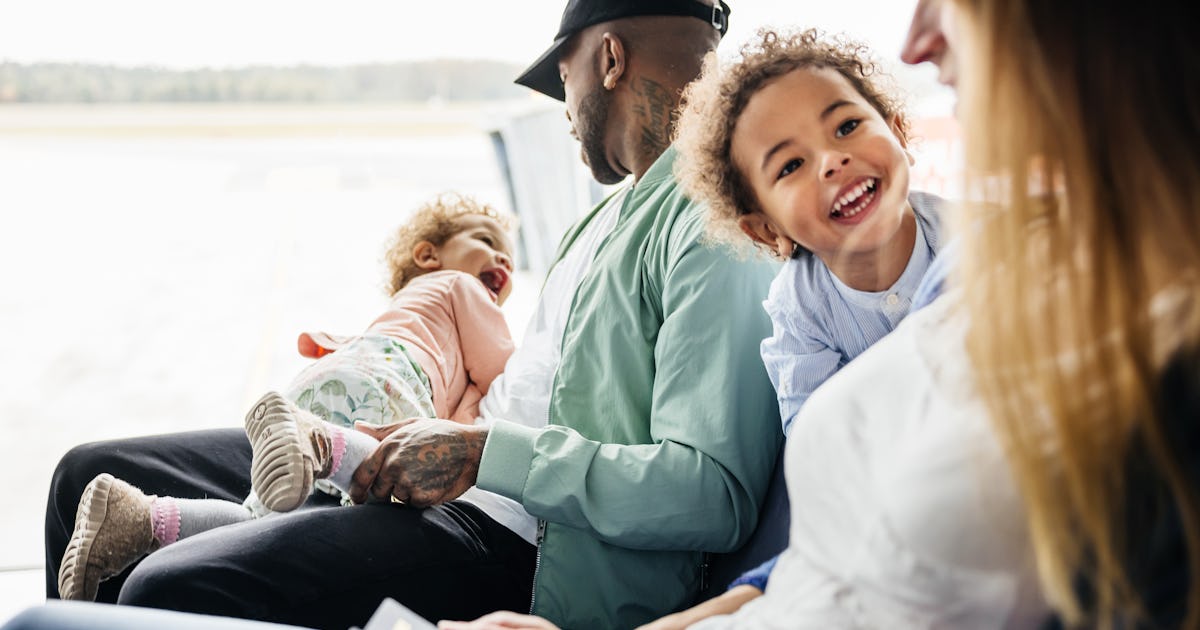Whether you and your partner are not married but have children, or you have remarried and each brought your own children into a blended family, or for any number of other reasons, it is not uncommon these days for parents to have different last names. children. Generally speaking, this isn’t a big deal, but if you’ve never flown with them before, you might be wondering: Can I travel if my child has a different last name than mine (whether domestic or international)?
According to family law experts, you absolutely can, but you’ll need to bring a few extra documents to be on the safe side.
international flights
Family law expert Siobhan Jeffels said in a blog post on her firm’s website that when traveling abroad you are most likely to be asked if your child has a different surname. This is because there are stricter security measures in place to prevent child trafficking. In addition to their child’s passport, she recommends parents bring:
- Your child’s birth certificate. This will list the full names of the parents and the child, and the child’s information will match their passport.
- adoption documents This proves that you are the legal guardian of your child.
- Your marriage certificate. If your name changed after your child was born and does not match what is on the birth certificate, traveling with your marriage certificate or name change document can explain the discrepancy to officials.
- Child Travel Consent Form. If you are traveling overseas alone with a child, regardless of whether you have the same last name or not, you will need a Child Travel Consent form to prove that their other legal parent gives consent for them to leave the country. But it can be especially important for parents who have a different last name than their child—which would raise a flag with officials anyway—so it’s especially nice to have. (If you have sole custody of your children, you may not need one, but you can bring the court order with you just to be on the safe side.)
It’s also a good idea to warn your children that border officials may also ask them questions, which shouldn’t scare them or make them nervous. Encourage them to answer clearly and honestly, and everything will be fine.
Finally, you can visit the U.S. Department of State’s Bureau of Consular Affairs website to find out what documents officials will want to see when you arrive and depart from other countries. Simply click on the travel advice for your destination, visit its country information page, and scroll down to “Entry, Exit and Visa Requirements.”
Domestic flights
There are not many documents required when traveling within the United States. File Rocket Lawyer says, look. In most cases, a birth certificate will do – it proves age, full name and your parentage.
According to the same legal experts, it’s best to get a child’s consent to travel if you don’t have the same last name as your child. It should include the name of the child, the names of the traveling companions, dates of travel, destination, and a statement of parental permission (if the person carrying the child is a grandparent or other adult). Then, sign it in front of a notary to make it official. You probably won’t be asked for it when flying domestically, but if you do, you’ll be glad you have it.
All in all, traveling with a child who doesn’t share your last name isn’t the most important thing in the world, as long as you do your research beforehand. After all, no one wants to be told at customs that they have to turn around and go home to get their birth certificate.




